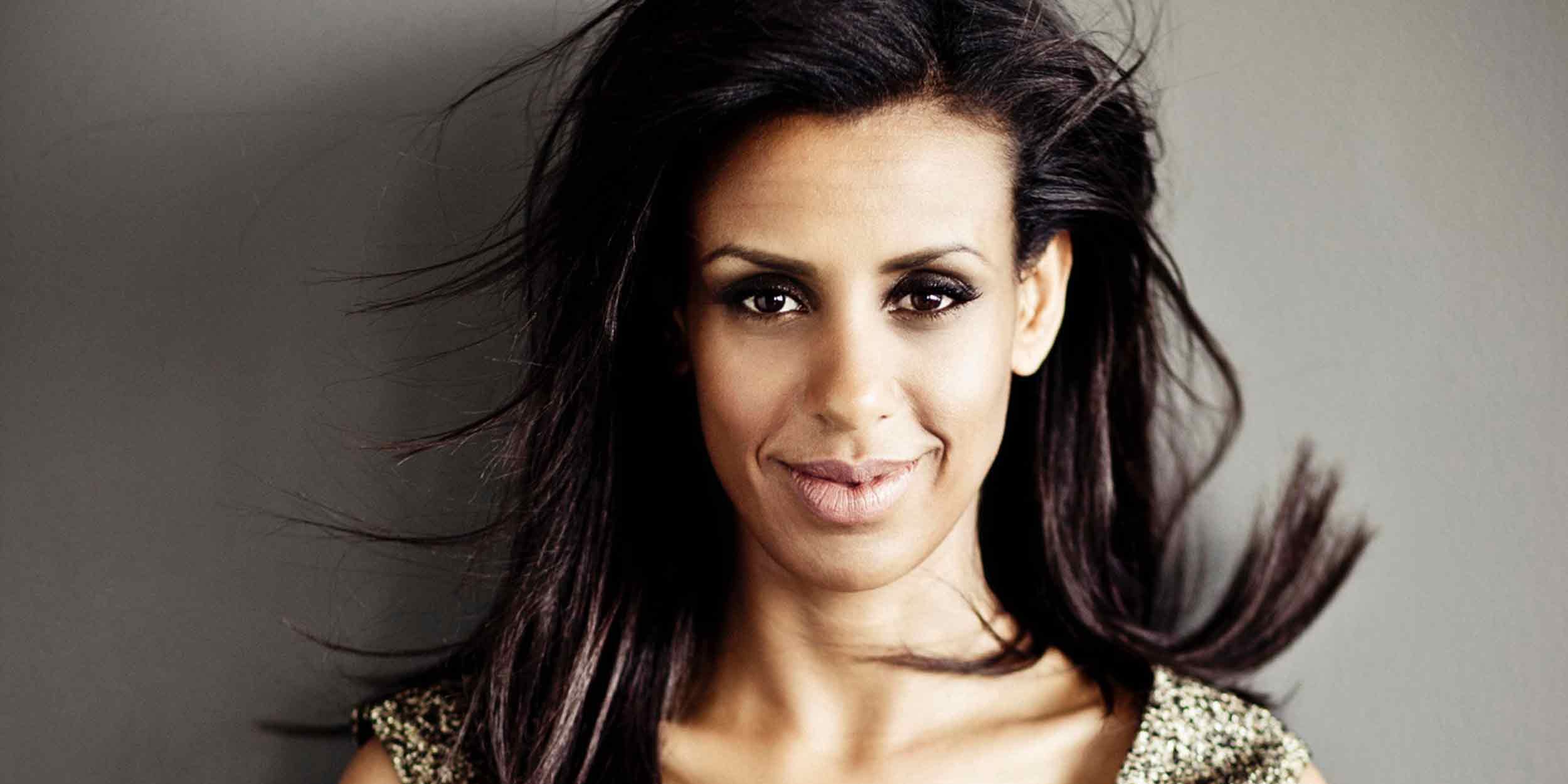HER STORY — Rebecca Makonnen is a Canadian radio and TV host. She is currently at the helm of the radio show On dira ce qu’on voudra on ICI Radio-Canada Première in addition to co-anchoring Esprit critique on television (ICI ARTV). She has been the spokesperson for L’Appui’s national campaign in 2018 that supports caregivers and encourages them to seek help.
THE BEGINNINGS
My mother was a self-reliant, very proud, very inde- pendent single mother. Over the years, we came to realize that she was suffering from Alzheimer’s disease, an illness she greatly feared. We realized this thanks to my sister Sophie. My sister was living abroad at the time and, although I realized that something was wrong with Mom, it was confirmed when Sophie came back. Because it was my mother, because she was my only parent, because I loved her, I naturally ended up taking care of her. I was a kind of first responder. I was very young. I have no regrets, but it’s as if, at the age when I should have had children and been starting a family, I was taking care of my mother. Meanwhile, I was also caring for my then partner, who was suffering from blood cancer. Years 2009 to 2011 were not easy.
TAKING RESPONSIBILITY
My sister, who returned to Montréal regularly, was the first to think of the legal documents, protection man- dates and notarized papers. She said, “We need to do this while Mom is still lucid.” We wanted to be able to make decisions for her if my mother was no longer able to do so. You may not be familiar with all the steps, but they are essential and, above all, necessary. Who gets the house? Does the person want to be kept alive? These are questions that need to be asked. It’s tempting to bury your head in the sand, especially when your parents are healthy. But they will eventually die one day, so why not do the minimum preparation? Especially if illness comes into the picture, you’ll have other concerns: you’ll be completely devastated. All this is hard, very hard. But it’s real life.
ISOLATION
Caregivers tend to isolate themselves, whether by choice or not. On the one hand, you have less time for your social life, friends and dating. We’re either spen- ding our time with the person we’re caring for or alone trying to recover. On the other hand, we don’t want to overburden those around us with everything. Because I was fairly young, I also told myself that the people around me couldn’t understand; they weren’t in that place in their lives yet. For this reason, it creates a strange downward spiral where you’re quickly left alone and exhausted with the feeling that you’re not going to make it. Also, we don’t necessarily immediately understand what a “caregiver” is. I told myself, “I’m my mother’s daughter and I’m my boyfriend’s partner: this is my job.” Later, I recognized who I was in that role. Beco- ming aware that you’re a caregiver early on gives you, I hope, the instinct to think about yourself, too, and not forget about yourself.
ASKING FOR HELP
In life, I’m a pretty reserved person, and I don’t like to reveal much about myself. But I needed help. Both my body and mind were telling me this. So, I did some research and found a support group far from home because I didn’t want to open up about my private life in my neighbourhood. I went to meetings every Monday night for eight weeks at a nursing home in Pointe-Claire. I needed to know what was coming next and break through my isolation. There, I found I wasn’t alone.
Whether you need a support group, guidance or just an attentive ear or some advice, you shouldn’t hesitate to ask for help. That’s what I liked about L’Appui: the listening part, where you can ask questions—all your questions. Illness is already overwhelming by itself. But on top of that, you don’t want to be caught off guard because you don’t have the answers to your questions.
There’s no shame in asking for help. I understand that there’s sometimes a certain amount of embarrassment in admitting that you need someone else, but far from being a sign of weakness, it shows emotional intelligence.
GUILT
For a caregiver, the psychological burden is immense. As if that weren’t enough, you can often feel guilt related to the way you’re doing things. It’s hard to deal with guilt. In my case, my biggest weakness is impatience: it isn’t easy to be patient with someone who asks you to repeat yourself all the time. I’m still angry with myself for having lacked patience with my mother several times—but this stuff is normal, so don’t be too hard on yourself. We always do the best we can with what we have.
AND AFTERWARDS?
Alzheimer’s means taking care of someone who will never get better. You’re providing support, and this is where the roles are reversed. In my case, I became the mother of my mother. At least she always recognized me, up to the last moment. She remembered that I was her daughter, even though she didn’t remember that she had been married very well. Her illness brought my mother and me much closer together, but the experience was also deeply physically and emotionally exhausting.
Very selfishly, one part of me was therefore relieved when it was over. And I came out of it more resilient: I realized that I was stronger than I thought, although at times I was sick of being strong. Having been a caregiver so early on helps me better support my friends who are going through it now. And I also know how much, in our society that often lacks compassion, caregivers are a model of empathy, like beacons in the night reminding us of our humanity.




